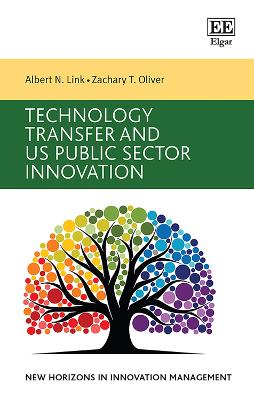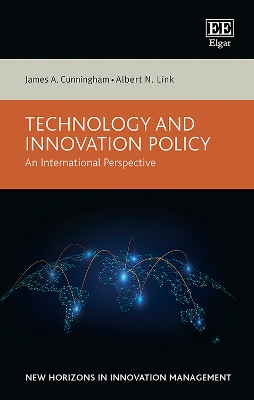New Horizons in Innovation Management
2 total works
Technology Transfer and US Public Sector Innovation
by Albert N. Link and Zachary T. Oliver
Empirical information and evidence are presented on myriad forms of technology transfer including, but not limited to, patents, licenses and CRADA activity. Publications are a form of technology transfer as are new metrics that quantify the efficiency of the technology transfer process.
Link and Oliver's work will be of great use to public policy makers in industrialized countries, scientists in federal laboratories worldwide and academic researchers. In addition, it will hold an important position in national and academic libraries.
Private sector and public sector investments in R&D are posited to be the relevant target variables for technology policy, and vehicles to provide incentives for making each more effective are discussed along with suggestive information about how effective incentives have actually been. Consideration is given to the unintended consequences of technology policy. Also emphasized is the environment in which technology policy is promulgated and its relationship to a global innovation ecosystem. Innovation policy is a consequence of technology policy, and the innovation policies of various countries are also discussed.
Technology and Innovation Policy will benefit academic researchers, senior scientists, innovation and technology policy makers, and graduate students who seek a deeper understanding of the relationship between technology and innovation policies from an international perspective.

